Weebly vs Shopify: Who Wins for eCommerce?
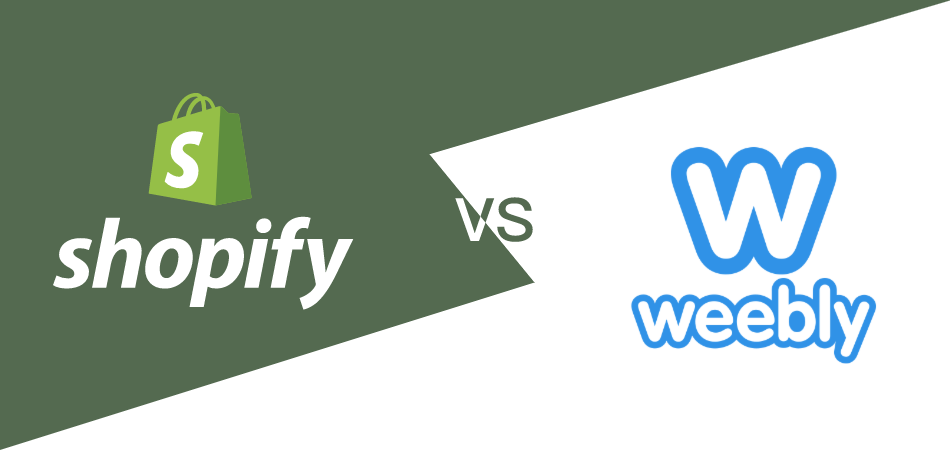
Shopify and Weebly are two completely different eCommerce platforms that are highly popular among online store owners. However, many have to work hard to choose between the two. Basically, Weebly is suitable for small businesses, and Shopify is great for large businesses.
However, Shopify vs. Weebly is a popular topic for debate. If you're also confused between the two, you must know the drastic differences that can help you decide which one is better for eCommerce.
Weebly vs Shopify: Definition
Before going into detail about the two eCommerce platforms, you should know the basics. So, let's begin with the definitions of the two:
Weebly
Weebly is a free website builder, but you have to pay for its additional features or services. The platform was founded in 2007, and 11 years later, it was acquired by Square. Today, Weebly is helping more than 50 million business websites located all over the world.
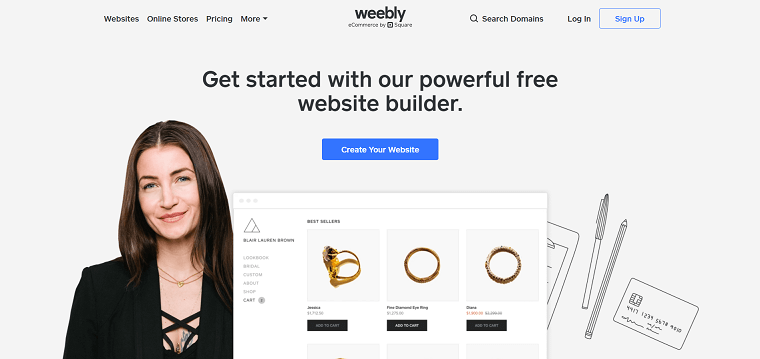
Weebly is a website platform with tools to help you create a website, blog, or online store without having any technical knowledge. You can get started for free today and build your website with a free domain name and 500MB of web space. Weebly's drag-and-drop page builder is effective in creating professional and unique-looking pages. In addition, Weebly offers over 500 fonts, 600+ backgrounds, and 1600+ icons to make your website look great.
Shopify
Shopify is one of the best-known eCommerce platforms available, and several online store owners highly recommend it. It is easy to use and offers various features essential for creating a successful online store. The eCommerce platform is also known for its high level of security, inventory management, and unlimited storage.
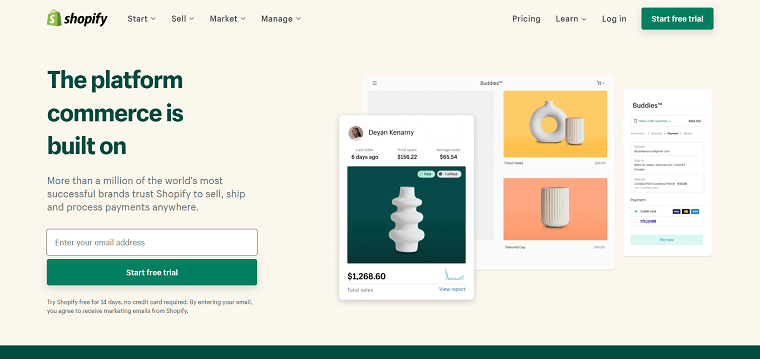
A few years back, Shopify integrated with Amazon, which helped several online merchants to sell their products on this eCommerce giant. Today, Shopify is the reason behind the success of more than 1 million businesses and is active in 175 countries worldwide.
Weebly vs. Shopify: Design and Customizability
Now, let's compare both platforms' design and customizability.
Weebly
The design features of Weebly are simple, and the themes are fundamental when compared to Shopify. However, Weebly is pretty compelling, and each template carries a modern feel. Using such templates can give your online store a contemporary feel and a polished look, even if you're using a smartphone. In addition, Weebly offers 15 official themes for your online store that will make it look better and more elegant, but Shopify offers much more.
Moreover, Weebly allows you to use eCommerce templates from third-party sources, but it's highly possible that the coding will not be compatible with the platform. Coming to customization, you can easily create unique pages for each item you sell in your store. Apart from that, the editing themes are amazing, and you can easily swap them if you want to change anything in the future.
Shopify
Shopify takes the prize when both platforms' design and customizability are compared. You can choose from more than 70 mobile-friendly store themes, each unique and completely different from the others. Browsing through the themes is easy, and once you find the best template for your store, you can get it up and running.
Shopify offers a range of themes, some are free, and others have a starting price of $140. You also have an alternative option in which you can use a theme created by a third party. If you're a bit tight on budget, you can rely on the free themes, and once your store starts earning you some profits, you can invest in the paid themes. Using paid themes is better as it provides access to more features and customization options. However, personalizing your store's theme can be a bit more challenging than it is on Weebly.
Weebly vs. Shopify: Pricing
The pricing can be differentiated according to the plans, but Weebly wins here as the offers are cheaper than Shopify.
Weebly
If you go with Weebly, you get three pricing options. It offers a free plan and three premium plans that online merchants can easily afford. For the ones going with the free plan, you may face restrictions to using the features, and you only get 500MB as the storage capacity for a single site. The most problematic issue with the free plan is that you can only sell products after launching your website, so it would be better to choose the paid plan. You have to pay $12 monthly for the Pro Plan, $25 for the Business Plan, and $38 for the Business Plus Plan.
Shopify
Shopify offers a 14-day free trial for those who want to test out the platform before committing to one of its three premium pricing plans. This trial allows users full access to Shopify's features so that they can make an informed decision about whether or not the platform is right for their business. In addition, users can cancel their subscription at any time during the 14-day trial period.
When it comes to the paid options, you get four plans, and they are -
- Shopify Lite - Available at $9 per month
- Basic Shopify plan - Available at $29 per month
- Shopify plan - Available at $79 per month
- Advanced Shopify plan - Available at $299 per month
You can upgrade your current plan anytime you want. But, you'll need to as the number of features will increase as you increase the price. The Basic Shopify plan is good for beginners, and the rest of the plans are more suitable for large-scale businesses. It is obvious that the monthly payment of the plans will be more expensive than the yearly ones because Shopify offers a 20% discount for an annual payment and a 10% discount for biennial payments.
Weebly vs Shopify: Ease of Use
As both of the platforms are highly popular, Weebly vs Shopify can be a never-ending debate. Fortunately, when it comes to ease of use, both platforms are very easy to use. There's no need to invest a lot of time in learning to set up the store or manage it effectively.
Weebly
Starting with Weebly, its drag-and-drop feature is one of the things that makes it so user-friendly and, therefore, reputable. It allows users to easily move photos and videos around with their mouse without having to deal with any complicated coding. This makes it perfect for people who want to create a website without any prior experience. The setup is also very simple to understand, as all you need to do is fill up the basic information, choose the kind of website you'd like to create, and customize it the way you want. In addition, the interface and navigation bar of Weebly is very simple so that you will feel free while managing your store.
Shopify
Now, coming to Shopify, this platform is suitable for eCommerce beginners and professionals alike. So, if you want to start your store online, you can easily learn Shopify and master it to get your business up and running.
Shopify’s user interface is very simple and easy to use. Just like Weebly Shopify has a drag-and-drop feature that enables anyone to build a website in no time. In fact, Shopify has a web-based store builder, which can be accessed from any computer with an Internet connection. Hence, Shopify is a good solution for someone who wants to start an online business but wants to avoid dealing with complex website design, software installation, and server management.
Weebly vs Shopify: Security
Security is given the top priority when you're running an online business. However, both platforms are good at offering a secure space to the users but can be a bit different from each other.
Weebly
Weebly automatically protects your store with SSL certificates and DDoS Mitigation for all plans. If there's encrypted data like payments and passwords between you and your customers, SSL certificates will encrypt it for you. On the other hand, DDoS Mitigation is effective in providing protection from cyber attacks. The password protection of Weebly is strong enough to protect your site from unwanted visitors, and you also have to set a password for every page of your website, making it even more secure.
Shopify
Shopify offers an unmatched level of security, and you don't even have to put in the slightest effort to maintain its security level. The platform will take care of all secure tasks in the background. As a result, eCommerce transactions are 100% secure, and the visitor's card data will always be safe when buying something from a shop created by Shopify. In addition, the platform also provides SOC 2 Type II and SOC 3 reports to its customers for the service. SOC stands for Service Organization Control, and it is an assessment of a company's information related to its standards and security level.
Weebly vs Shopify: eCommerce Features
Finally, let's compare the top eCommerce features of both platforms so that you can decide which one is better for eCommerce.
1. Management of Products
Weebly allows you to keep an eye on the store inventory and even shows the number of remaining products to the customers. With the help of this feature, you can easily manage hundreds of products and give many options to consumers whenever they feel like they're running out of options. On the other hand, Shopify also offers an effective way to manage your products from the dashboard. Shopify makes it easy for you to manage your store's inventory by importing and exporting data using CSV files or Shopify's Importer Store app. This way, you can track thousands of products, customers, and inventory items without manually entering everything into the system.
2. Abandoned Cart Emails
Abandoned Cart Emails is a feature in Weebly that allows you to send automated emails to customers that leave their shopping carts abandoned right before the payment option. However, the feature is only available for Business Plus, which you can get by choosing the premium plan of Weebly. You also get this feature in Shopify as "Abandoned Cart Recovery," but you can access it with any plan.
3. Statistics
If you're using Weebly, you can access all of the insights and the required information from the dashboard. Apart from that, you also get to see visitor statistics that include the number of website visits, product view lists, and more. Moreover, Weebly is integrated with Google Analytics, so that store management becomes much easier.
Shopify offers all insights and reporting tools for free, but you have to pay for an upgrade. The platforms give you the required insights related to revenue, sales, customer reports, etc. Just like Weebly, Shopify is also integrated with Google Analytics, making sales management better.
Wrapping Up
If you've come this far, you already know enough about the features offered by Weebly and Shopify. So, concluding Weebly vs. Shopify will be clearer for you than it was before.
If you're selling online for the first time and are trying to figure out if you can achieve success there, Weebly is for you. But, if you aim for long-term goals for your eCommerce store, Shopify is the right choice for you.




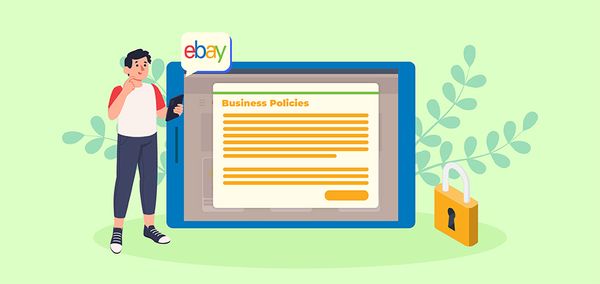
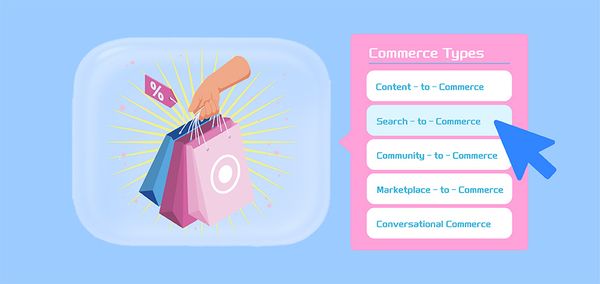






 Company
Company
 Why Choose DSers
Why Choose DSers
 Blog
Blog
 Help Center
Help Center




 Live Chat
Live Chat